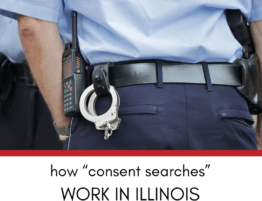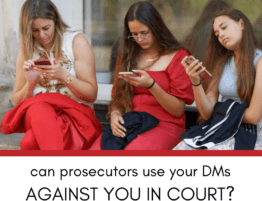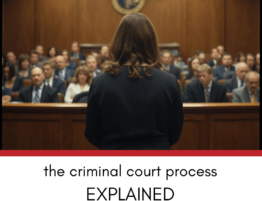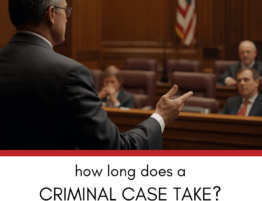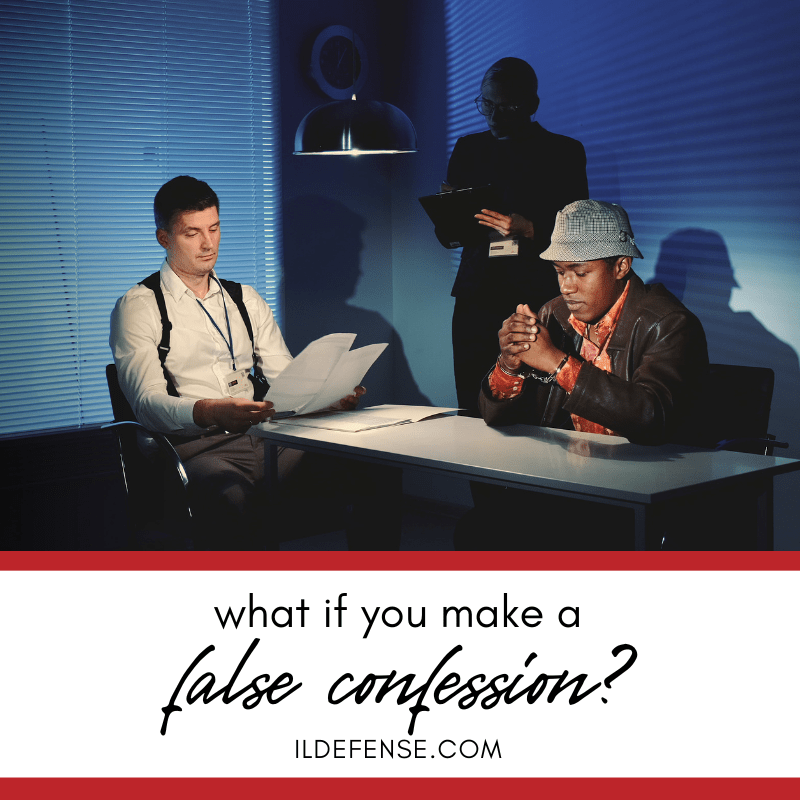
Making a false confession can have serious legal consequences. Understanding why false confessions occur and knowing your rights can help you navigate the legal system more effectively if you find yourself in this situation.
What if You Make a False Confession?
If you make a false confession, it’s essential to understand the implications and take immediate action to protect your rights. This guide explains the following:
- Reasons why false confessions occur
- The legal consequences of a false confession
- Steps to take if you’ve made a false confession
- The role of a Chicago criminal defense lawyer
- Frequently asked questions
Here’s a closer look at each.
Reasons Why False Confessions Occur
False confessions can happen for various reasons, often under intense pressure or duress. Some common reasons include:
- Coercion: Police officers may use aggressive or intimidating interrogation techniques that pressure individuals into confessing to crimes they did not commit.
- Intimidation: Fear of harsh treatment or consequences can lead individuals to falsely confess to avoid immediate discomfort or threats.
- Exhaustion and Stress: Long interrogation sessions without breaks, sleep deprivation, or overwhelming stress can impair judgment and lead to false confessions.
- Mental Impairment: Individuals with mental health issues or cognitive impairments may be more susceptible to making false confessions due to confusion or misunderstanding.
- Desire to Protect Others: Some individuals may falsely confess to protect someone else from being charged or to shield a loved one.
Understanding these factors is crucial in recognizing why false confessions occur and how to address them.
Related: Illinois criminal defense blog
The Legal Consequences of a False Confession
A false confession can have severe legal consequences. Once a confession is made, it becomes powerful evidence that can significantly influence the outcome of a case. Prosecutors and juries often view confessions as strong indicators of guilt, which can lead to wrongful convictions. A false confession can result in criminal charges, fines, imprisonment, and a permanent criminal record. It can also undermine your credibility and complicate your defense. Recognizing the gravity of a false confession is essential for taking appropriate action to protect yourself.
Steps to Take If You’ve Made a False Confession
If you have made a false confession, it is crucial to take immediate steps to address the situation. First, contact a Chicago criminal defense lawyer as soon as possible. Your lawyer can help you understand your rights, review the circumstances of the confession, and develop a strategy to challenge its validity. Inform your lawyer of any coercion, intimidation, or other factors that led to the false confession. They can gather evidence, such as interrogation recordings or witness statements, to support your claim. It is also important to refrain from making any further statements to law enforcement without your lawyer present.
Related: Are minors entitled to criminal defense lawyers in Illinois?
The Role of a Chicago Criminal Defense Lawyer
A Chicago criminal defense lawyer plays a vital role in addressing a false confession. Your lawyer will investigate the circumstances surrounding the confession, identify any violations of your rights, and challenge the admissibility of the confession in court. They will work to demonstrate that the confession was made under duress, coercion, or other improper conditions. Additionally, your lawyer can provide guidance on how to navigate the legal process, represent you in court, and advocate for your best interests. Having an experienced lawyer on your side increases the chances of a favorable outcome and helps protect your rights throughout the legal proceedings.
FAQ About False Confessions
Check out these commonly asked questions about what happens if you make a false confession. If you don’t see your question here, please call our office and we’ll find you the answers you need.
Can a False Confession Be Used as Evidence?
Yes, a false confession can be used as evidence in court. However, if it is proven that the confession was obtained through coercion, intimidation, or other improper means, your lawyer can argue that it should be inadmissible. It is crucial to work with a lawyer to challenge the validity of the confession.
What Should I Do If I Made a False Confession?
If you made a false confession, contact a Chicago criminal defense lawyer immediately. Your lawyer can review the details of your case, gather evidence to support your claim, and develop a strategy to challenge the confession in court. Do not make any further statements to law enforcement without your lawyer present.
Why Do People Make False Confessions?
People make false confessions for various reasons, including coercion, intimidation, exhaustion, stress, mental impairment, and a desire to protect others. Understanding these factors can help in addressing and challenging false confessions in court.
Can a False Confession Be Reversed?
Reversing the impact of a false confession can be challenging, but it is possible. Your lawyer can argue that the confession was obtained under improper conditions and present evidence to support this claim. If successful, the confession may be deemed inadmissible, and your case may be re-evaluated.
Related: Can you refuse to talk to the police?
How Can a Lawyer Help with a False Confession?
A lawyer can help by investigating the circumstances of the confession, challenging its validity, and advocating for your rights in court. They can gather evidence, identify rights violations, and develop a defense strategy to address the false confession. Having a lawyer on your side is essential for protecting your rights and seeking a fair outcome.
Do You Need to Talk to an Attorney?
If you’ve been accused of a crime, we may be able to help you – and don’t worry: It’s completely confidential. Call us at 847-920-4540 or fill out the form below to schedule your free, private consultation with an experienced and skilled Chicago criminal defense attorney now.
Contact Us
"*" indicates required fields


